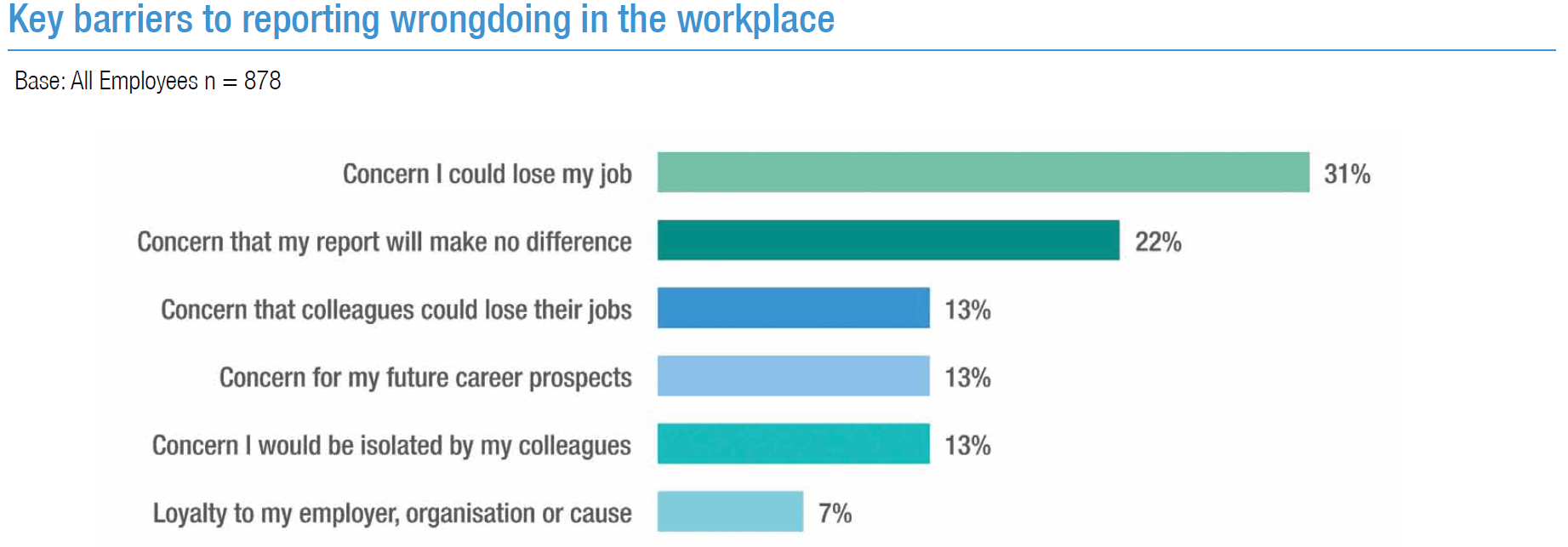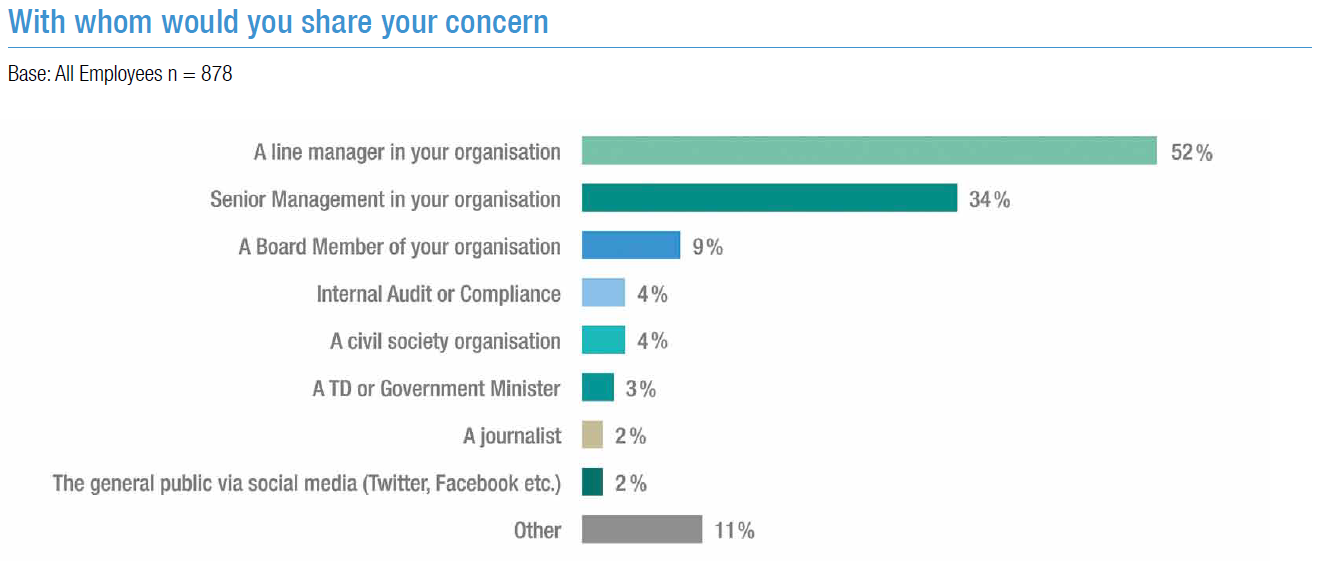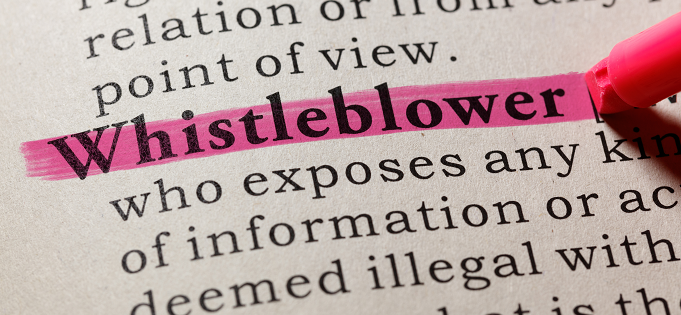Stephanie Casey manages Integrity at Work, a programme developed by Transparency International Ireland to help employers create ethical and progressive workplaces where anyone can raise concerns of wrongdoing. Contact Stephanie on (01) 554 3938 or email support@transparency.ie.
Whistleblowing is one of the most effective ways of exposing corruption, human rights abuses and other wrongdoing. Despite this, whistleblowers are often victimised for speaking up and their treatment is used as an example to others to remain silent.
According to the 2017 Eurobarometer, 62% of Irish people believe there is corruption in our public institutions and 65% believe corruption is part of our business culture. The top two reasons Irish people gave for not reporting corruption were that it would be difficult to prove, and a belief that there is no protection for those who report wrongdoing.
These responses concur with the Integrity at Work (IAW) Survey carried out by Transparency International Ireland in 2016. This was the first national survey on employer and employee attitudes towards whistleblowing in Ireland. It found that the main reasons employees would not speak up about wrongdoing in the workplace were fears that they would lose their jobs and concerns that their reports would not make any difference.

In 2014, the Irish government introduced the Protected Disclosures Act (PDA) to provide greater protection for whistleblowers. However, the IAW survey found that employers were unaware of the protections the act provided, and only 10% of respondents had a whistleblowing policy in place two years later.
The IAW survey also found that employees still held negative cultural attitudes towards whistleblowers. When employees were asked to associate three words with whistleblower, the top terms they gave were informer, traitor/rat, and snitch.
The Business Case for Whistleblowing
Over 90% of employees surveyed said they would raise concerns with a senior manager or Board Member within their organisation. This shows that by putting effective arrangements in place, organisations can identify and deal with potentially serious issues before they escalate.

Conversely, when companies face public disclosure of concerns, their reputation and market value can be threatened. In an economy where 70 to 80 per cent of market value comes from intangible assets such as brand reputation, organisations are especially vulnerable to anything that could potentially harm that reputation. Therefore, effectively managing reporting of wrongdoing within an organisation is critical for the minimisation of performance, financial and reputational risks.
The Difference Between Whistleblowing and Speaking Up
The Institute of Business Ethics differentiates between whistleblowing and speaking up. They define speaking up as someone raising a concern internally so that it can be remedied before it becomes a bigger problem. They define whistleblowing as ‘a last resort’ occurrence where problems have not been effectively dealt with internally. Whatever terminology organisations choose to adopt, the end goal should be to foster a culture of integrity where staff are encouraged to raise ethical concerns and do the right thing.
Some of the key elements for employers to consider in developing effective whistleblowing/speak up arrangements include:
- Providing employees with a variety of reporting channels, preferably accessible 24 hours a day, since most reports are made during non-business hours. A mixture of different reporting channels (for example, telephone hotline, dedicated email, web-based system, in-person reporting) ensures greater confidence amongst employees.
- Making staff aware of policies and procedures and where they can access external sources of advice such as employee assistance services and the Speak Up helpline operated by Transparency International Ireland.
- Ensuring robust protection from all forms of retaliation and protecting the reporter’s identity throughout the process.
- Developing a detailed case management system with clearly defined responsibilities, timelines and communications guidelines and ensuring that all recipients are adequately trained to deal with reports.
- Monitoring the efficiency of the process by collecting and reviewing key statistics on a regular basis. This can include the number of reports, the percentage investigated and the average number of days cases are pending. Where possible, make responses to reports visible to staff.
- Establishing an open, inclusive way of working in which employees are encouraged to raise concerns. A speak up or whistleblowing policy will be more effective when it forms part of an established ethics policy and programme.
If organisations invest in integrity, attitudes towards whistleblowing in Ireland may change for the better. Such a cultural shift takes time, resources and - above all - commitment. However, the long-term impact in terms of employee motivation, brand reputation and organisational performance is invaluable.

